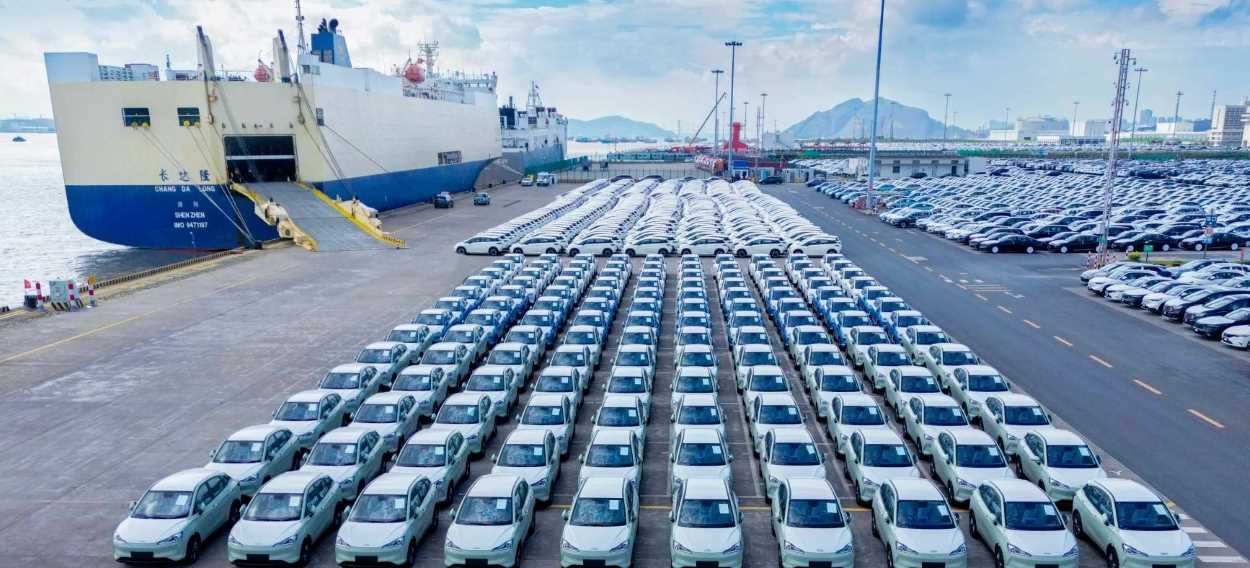Chinese automakers and shipping companies are investing heavily in car-carrying vessels, setting a new record for orders to facilitate a surge in electric vehicle (EV) exports.
According to Veson Nautical’s data, this will propel China towards having the world’s fourth-largest fleet by 2028, an upgrade from its current eighth position.
With 33 ships, China trails behind leaders like Japan, which boasts 283 ships. However, Chinese firms have placed orders for 47 additional vessels, representing a significant 25% of global orders. Major buyers include automotive giants such as SAIC Motor, Chery Automobile, and EV leader BYD, alongside shippers like COSCO and China Merchants.
Veson Nautical’s analyst, Andrea de Luca, highlighted, “The Chinese-controlled car carrier fleet’s capacity will surge from 2.4% to 8.7% post-delivery of these ships.” This expansion is expected to pave the way for new trade routes dedicated to Chinese automakers.
This boom in vessel orders has predominantly benefited Chinese shipyards, capturing 82% of the global orders. Amid economic pressures and competitive markets, automakers are exploring new territories where their products fetch higher prices. In this quest, China surpassed Japan last year to become the largest auto exporter. Notably, BYD exported over 240,000 cars in 2023 and aims to increase this figure to 400,000 in the current year.
Global manufacturers, including Tesla and Volkswagen, are also ramping up production in China to leverage its cost-efficient supply chain for exports.
Automakers are increasingly purchasing their vessels, driven by rising shipping costs and support from local governments. By the end of 2023, the cost of chartering a 6,500-vehicle carrier skyrocketed to $115,000 per day, a stark increase from the 2019 average, as per Clarkson’s data.
However, the burgeoning export activity has drawn criticism from the U.S. and EU, which accuse China of using these exports to mitigate its industrial overcapacity by inundating their markets with low-priced goods.
China counters these accusations by emphasizing innovation and downplaying the significance of state aid in its growth. The concern of overcapacity looms large in shipbuilding, too, with China often at the centre of such debates. Nonetheless, Xu Tianchen from the Economist Intelligence Unit notes potential growth areas, like car cargo ships, that are yet to reach market saturation.
Amid these dynamics, U.S. Treasury Secretary Janet Yellen voiced overcapacity worries during a visit to China. Concurrently, China’s Commerce Minister Wang Wentao is in Europe, likely addressing a European Commission inquiry into the competitive edge Chinese-made EVs might have due to subsidies.






